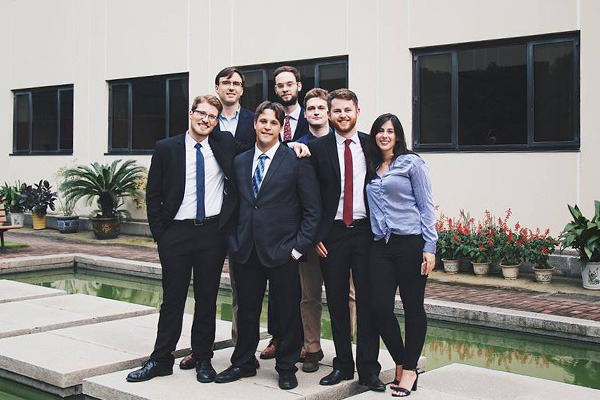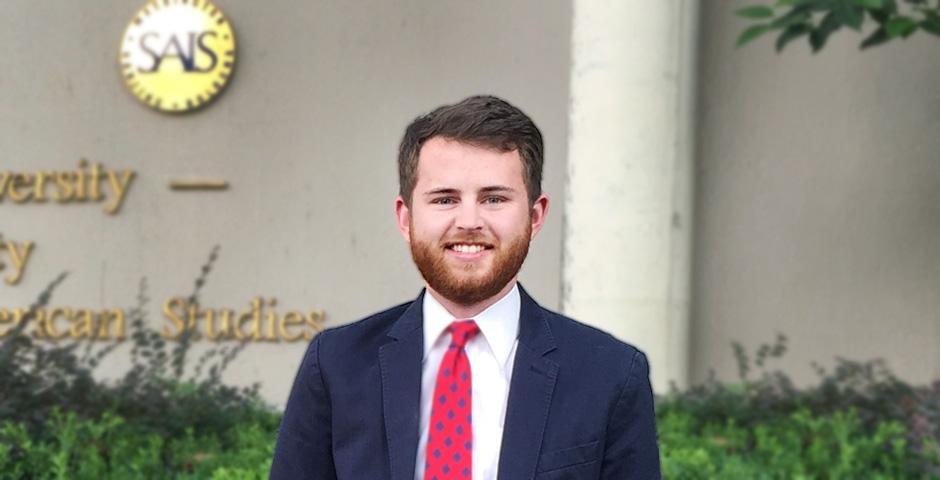This spring, Max Bork ‘17 became the first NYU Shanghai student to win a Boren Fellowship from the United States government. He is using his award to pursue a master’s degree in international studies from the Johns Hopkins University - Nanjing University Center for Chinese and American Studies (HNC), a US-China joint venture graduate school in Nanjing.
“I wanted to find a way to continue using my Chinese language skills and the knowledge and understanding of China I have built up since I started NYU Shanghai, and I knew that the Boren Fellowship was a great way to do this,” says Bork, who majored in Interactive Media Arts and minored in Chinese music at NYU Shanghai.
Created by the National Security Education Program, the Boren Fellowship supports US graduate students who are studying languages around the world that are essential to national security. In exchange for a commitment to work for the US government after graduation, the Fellowship provides up to $24,000 in tuition assistance.
Bork, a Californian who arrived at NYU Shanghai in 2013 knowing no Chinese at all, will be writing and defending a thesis on Chinese sea power in the Indian Ocean region entirely in Chinese.
This Monday, October 29 at 5:30 pm, Bork will join NYU Shanghai faculty members Ivan Rasmussen and Eric Hundman, who are both previous Boren Fellows, in an information session organized by the Global Awards Office to offer advice on applying for the fellowship.

The Gazette talked to Bork (second on the right) this week about the Fellowship and his future plans.
How did you learn of the Boren Fellowship? How did the idea of applying for it in your senior year connect with a postgraduate study plan at Hopkins Nanjing Center?
The Boren Fellowship is a good way to make graduate programs like the Hopkins Nanjing Center more affordable for students. I had always been interested in international studies and politics, and I also wanted to continue my language studies, so the HNC was a good option for me. HNC has a long history of teaching Boren Fellows, and given its emphasis on language and topics relevant to US national security, it has a strong connection with Boren's goals.
In what other ways does the Boren Fellowship contribute to your current study, in addition to financial aid?
I had long been interested in political issues and issues related to US national security even before NYU Shanghai, and this fit in with both the Boren Fellowship and also my research at the HNC. The fellowship certainly affects my job search and my frame of reference when it comes to the future. It also encourages me to look more closely at issues of international strategic studies and international relations, both within my thesis research and otherwise. The Boren Fellowship and the Boren Scholarship also provide a network of former fellows and scholars that are an excellent resource for the future.
Boren fellows must commit to working for the Federal Government for at least a year after graduation. Is working for a government institution, especially in the national security arena, something you are passionate about? How did you build such interest?
I have always been strongly interested in working for a government institution. For me, working in government is the best way to make a positive impact on society, particularly in my home country of the United States. I think we all have a responsibility to be involved in politics, particularly in today's political climate, and for someone coming from the background of NYU Shanghai and HNC, national security is a great way to do just that.
I also want to help my country and help people in both the United States and China understand the culture on the other side of the divide.


